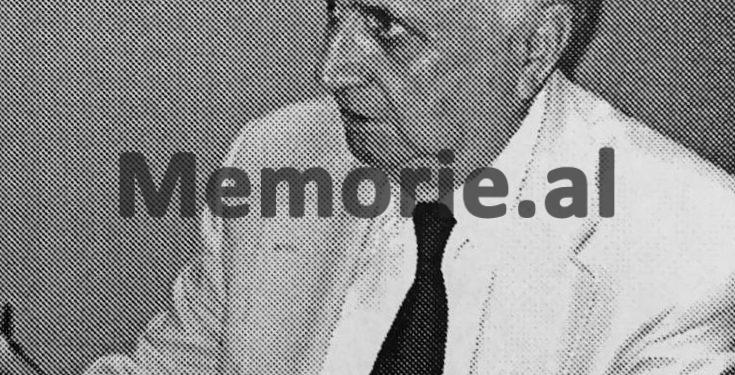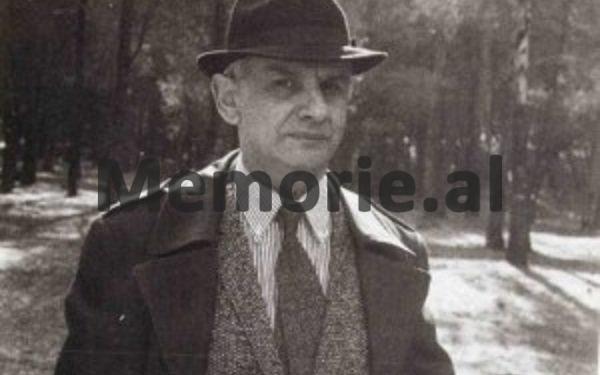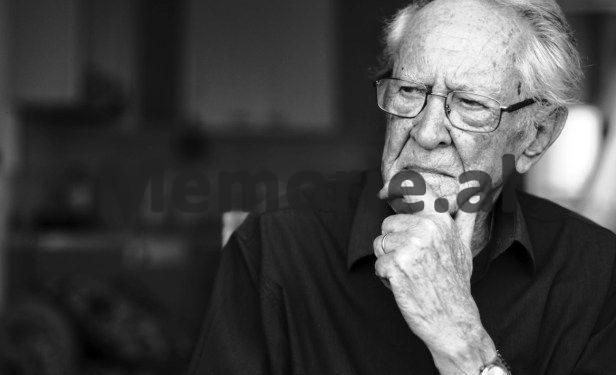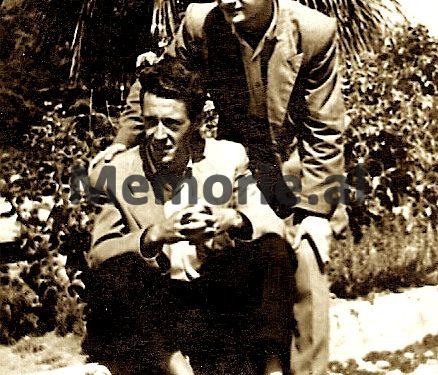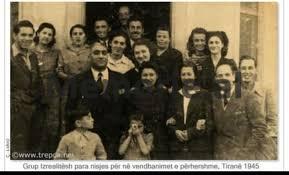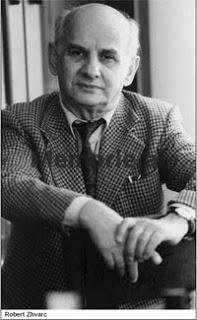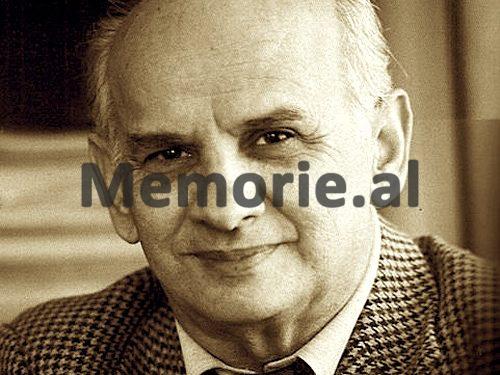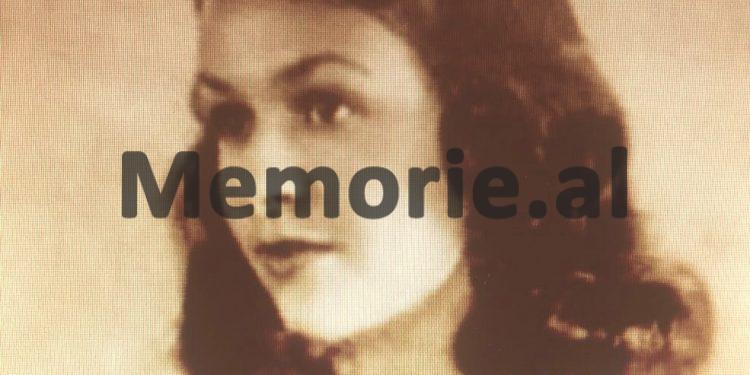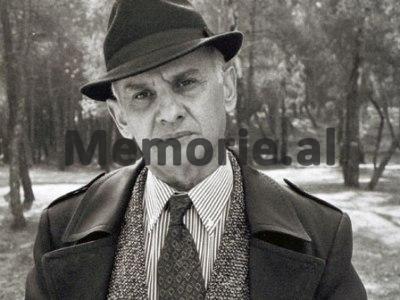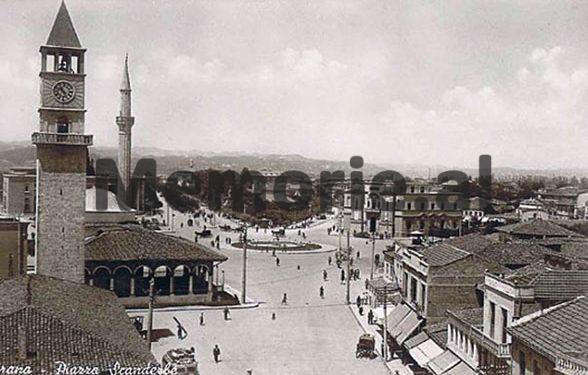Dashnor Kaloçi
Memorie.al publishes the unknown story of a well-known translator, Robert Shwartz, who in 1945 and his grandmother went to the Tirana prison to send food to his arrested grandfather, Joham, who was arrested. and died there under unknown circumstances. Testimony of Genc Koka, (son of Zogist Colonel Sami Koka, who spent 30 years in the jails of the Communist regime of Enver Hoxha), about the story of a group of his high school friends in Tirana, including Amik Kasaruho, Vasil Melo, Emil Totozani, Triumf Nepravishta, Milto Dado and Qemal Jusufati, who were arrested by the State Security after pressing several tracts and giving their comrades, Guljelm Paci, Ndoc Ljarja, Petro Konomi and Philip Alina, distributed in the city of Shkodra. How was Robert Shwartz arrested twice by the State Security, beating him in the “Leafy House” and “Selvija”, where he was “weighed down” to show the group members, but he …?!
None of the close friends of a well-known ex-translator and nobleman who passed away in 2003 has known that he was twice arrested by the State Security in 1946 and 1950. Schwarz never mentioned this fact, he never talked about himself. He makes this public by witnessing for the first time one of his close friends since childhood. Genc Koka, in his exclusive testimony for Memorie.al, tells us the unknown side of one of Albania’s most famous translators, who in his life never refused to speak for himself ?!
Who is the man who testifies about Shwartz?
Who is Genc Koka and what is the past of the man who makes public the unknown fact of the arrest by the State Security of former well-known translator Robert Shwartz, who passed away in 2003? Origin of the Koka family is from Delvina but Genci was born in the Italian city of Turin in May 1933 after his father, Sami Koka, a senior soldier of the Bird Monarchy, attended the Institute of War Studies. In October 1944, when the war was not yet over, Genci’s father, Samiu, was arrested by the Communists and, after spending some time in the investigator, was sentenced in March 1945 to 25 years in prison by the Special Court. After graduating from Technical School (7 November) in Electrical Engineering, Genc was sent to Bulqiza where he worked for many years as a geometer. He was able to graduate with a degree in correspondence, and with many vicissitudes, graduated high school for Chemistry-Industrial, (he was awarded the diploma only in 1979) and later appointed an engineer at the Brick Factory in Vora. In October 1990, with the assurance of his brother, Pëllumb, who has lived in the US since 1944, Genci and his family moved to Italy and then to the United States.
Mr. Koka, when were you first introduced to Robert Shwartz?
I met Bert in 1944, when my family lived on Durres Street, in the building that later became the headquarters of the Yugoslav embassy. In front of us at the time was Emil Totozani, who was Bert’s close friend, and he introduced me to him for the first time. I first met Bert at the time, but our friendship became more intense at the beginning of 1945 when my mother and I went to bring food to Dad, Sami, in the old prison of Tirana. At the time, just like me, Bertie accompanied his grandmother to bring food to his grandfather, Joham Shwartz, who had been arrested for politics and died in prison under unknown circumstances.
Where and with whom did Schwartz live at the time you knew him?
At the time of the German occupation, Berti lived somewhere on the street “Bogdani” and after the arrest of his grandfather, Johann, who died in prison, he lived only with his grandmother, who raised him. All of us close friends, we knew that she was his mother and the fact that she was a grandmother, we learned too late.
Who else was in your social circle at the time that you became acquainted with Shwartz?
In addition to Emil Totozani I mentioned above, our social circle included Amik Kasaruho, Vasil Melo, Milto Dado, and Triumf Nepravishta. At the time we were living in Durres Street, Amik Kasaruho, who was the grandson of the owner of the house, Dr. Qemal Jusufati and there I was first introduced to Amik. While Emily with Vasil Melon lived in front of us. I, Robert, Amiku, Milto, and Triumph, in 1945 were in a class, in VI (the first unique one) where today is the Faculty of Natural Sciences. After finishing our unique school, we all as a group of friends started Technical School, (Polytechnic 7 November). Robert and Amiku were in the Mechanical branch, while I with Vasil Melon (or Bill as we called it) in the Electrical branch. We often met in my house or in Amik’s house and discussed, among other things, political problems, speaking out against the current regime.
Did you have a group leader?
It’s not that we had elected a chairman, but Amiku was like saying the one we were gathering around.
What were you talking about specifically and were you not afraid that any of you could tell?
Our conversations were varied, e.g. Amik told us that: Albania should be more associated with Anglo-Americans and not with the Soviets and the Yugoslavs. Although we did not all belong to the same social stratum, as Vasil Melo and Emil Totozani had Communist backgrounds, our friendship was so strong that we never took it for granted that any of us could tell.
Did your group remain solely in the context of anti-regime talks, or did you have any concrete action?
After consolidating the group and making sure no one was talking, Amiku pressed a tract, which she first told only to my sister, Rita. At the time he pressed the tract, Amiku had read Arkady Gaidar’s “New Guard” and told us that we would remove the photos of Stalin and Tito from school and replace Skanderbeg and Ismail Qemal in their place.
Did you take that action?
We were unable to accomplish the plan Amiku had planned after we were arrested by the State Security.
How did it happen, who told…?
Amik gave the pressed track to Ndoc Larja to send to some Catholic priests in Shkodra. From a copy of the track, he also gave Guljelm Paci, Petro Konomi, and Philip Alina. It was not clear who told, but at the same time with Ndoci who was arrested by the Security in Shkodra, we were also arrested in Tirana. So on October 14, 1949, Amiku and Vasili were first arrested while going to school before the old maternity hospital. Petro Konomi was arrested after them and I was arrested the same day at Brraka as I was going to school. After we were arrested, Vasili and I were released after two or three days, telling us that; a second order from the prosecutor would be expected. The others went on trial and were sentenced: Amiku, 10, my sister, Rita, 10, Petro Konomi, 6, and Ndoc Ljarja, 3. The charge against them was: “Activism against the regime and propaganda against the Soviet Union and Yugoslavia”.
How did you and Vasil Milo escape without being punished?
I and Vasilin rescued our friends by saying that they had not told us about the tract. They had told me I was talkative and they were afraid to tell me after getting too much money, and for Vasil that there were families affiliated with the Communists.
But Shwartz was not arrested?
Berti was not arrested because he was defended by everyone, saying that he had not been told, but to expel him from school, he and Vasil were dismissed with the motivation: “Bad political attitude and behavior against school rules our “. With this motivation, we could not “kiss” in any school in the republic. In fact, Bertie had been arrested once in 1946 while doing gymnastics at school in nearby Shallvare.
Why did they arrest him?
I was present when they arrested him after finding a badge of American Albanians that his grandfather had given Johan. Bertin was held for 24 hours at “La Bastia” (Dr. Basho’s Leaf House) beating and spitting. As Berti himself told me when he came out, he had been interrogated, telling him where he had found it, what a detective, and so on.
Did Schwartz speak against Enver Hoxha’s communist regime?
Berti often spoke against the communist regime in power. He was a kind-hearted man and did not agree with the violence of that regime. Bertie wrote miracles and gave them to us to read, but stopped them after the teammates were arrested.
After they were expelled from school, what did you do?
Vasil Melo and I went to the Enver Plant to look for work, telling the truth about what had happened to us, but they were not accepted. The chief of staff laughed and said, “And you want to get started here?” Whereas Berti started as a typist for the writer Drago Siliqi, being paid as a private if not mistaken by the Writers’ League. Schwartz worked 12 to 14 hours a day, typing with a typewriter “Olivet” which had his own private.
After your friends were arrested, did you save your friends and ever went to jail to see them?
We kept our company and never parted. I, Berti, Basil, and Milto Dado, we met and talked fearlessly to each other, just like before. Berti and Vasil went to jail twice and met Amik, and I never went after leaving me in Tirana. After leaving prison, Amiku stayed for a few hours at his home and immediately went to Bertie’s. Amicus was staying at Bert’s house.
Did Shwartz Have Problems with State Security?
Berti never shared his problems with State Security, as he was under surveillance all the time. Just shortly after our group was arrested, in March 1950, a lieutenant colonel of State Security (Bektash B., later killed himself) arrested Shwartz while he was going home and sent him to “Selvija”, On Dibra Street, where the State Security Center was.
How long did they keep Bert there?
He was held there for only 12 hours, torture him, and as he told me, he was weighed down by his ears.
Why did they arrest Shwartz and what did they ask for?
Bertin was arrested as a member of our group, and for the 12 hours they were held there, they asked him about Amik, me, the group’s activities, etc. But he did not say that otherwise we would have been arrested. After that Bertin was constantly targeted and wanted to arrest him because he threw anti-regime slogans. In addition, Bert was in need of attention because he was the only one at that age wearing Republican hats and regarded as bourgeois.
How long did your association with Shwartz continue?
Until he had the spirit alive. Just hours before he passed away, though he was in serious condition, he phoned me in the US and asked about my health (because I also suffer from heartburn). This was Berti, a man of great heart who remained such until the end of his life./Memorie.al




